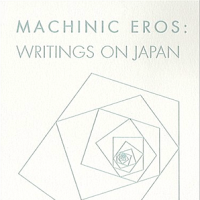"Machinic Eros" is a collection of texts about Japan written by French philosopher and psychoanalyst Felix Guattari during the bubbly 1980s. In his many trips to Japan, Guattari saw, like others, a mixture of the archaic and hypermodern, and a way out of Western binary thought. He even imagined, overly optimistically in the opening essay "Tokyo, the Proud," that the city would become "the capital of the emancipation of the Third World."
Machinic Eros, by Felix Guattari
154 pages.
Univocal, Nonfiction.
While his view of Japan's criticality was sadly exaggerated, his robust and often difficult ideas remain pertinent. Linking political and libidinal economies, he argues that labor has become "completely mass mediatized" and that capitalism influences subjectivity. He concludes that the unconscious is a political concern — a vital insight in Japan, where advertising agencies hold formidable sway and Prime Minister Shinzo Abe's administration strong-arms the media.
Guattari's references to micromedia are also rich with contemporary implications. As media can now be produced by virtually anyone, there's infinite potential for them to — in Guattarian terms — not only "cybernetically enslave," but also convey a multitude of languages and affects.
Some of his conversations with artists, however, will strike the uninitiated as absurd. Asked to explain in concrete terms what he means by his use of the word "flesh," he says, "Well, it's kind of like making mayonnaise."
The most provocative parts of this book are Guattari's explications of his concepts, not their application to Japanese works or cities. Rightly so, as he intended his ideas not simply to be consumed, but rather used to break existing conditions and offer alternative possibilities in a process he called "desire."



















With your current subscription plan you can comment on stories. However, before writing your first comment, please create a display name in the Profile section of your subscriber account page.